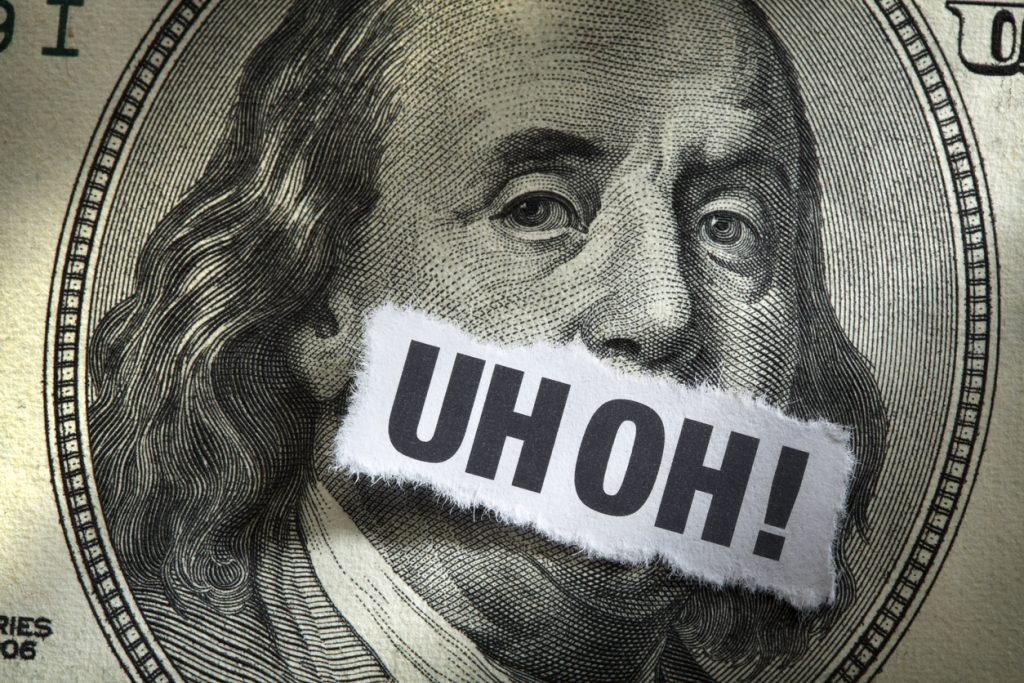
How Often You Should Check Your Credit Score
Unless you’re applying for a credit card or a loan, your credit score is probably the last thing on your mind. Some people are hesitant to check their score as they’re afraid of what they may find, a bit like stepping on the scales after Christmas meal, but you need to know those numbers regularly to know where you stand and how to keep your credit (and yourself) in good shape.
If you’re wondering ‘how often should I check my credit’, in short, you can check your score as often as you want. But just because you can check your score often doesn’t necessarily mean you should. Before we get into the ifs and the whens let’s talk about the why. Why is taking a peep a good idea in the first place? Keep on reading to find out…
Why should you check your credit report?
- To make sure your information is accurate
- To know your financial health
- To keep your credit in good shape
- To gain insights as to what harms and helps your credit score
- So that you have no nasty surprises when applying for a loan
Credit report vs credit score
Before delving into your credit score checks you’ll need to get your head around the difference between your credit report and credit score – don’t worry, it’s a common misconception, so we’ll clear that up for you.
Your credit score is a number that reflects the information in your credit report at a certain point in time and can fluctuate as often as daily.
Here’s the lowdown on credit report vs credit score: Your credit report will contain a mix of your balance history, payments, accounts, inquiries and more. You’ll only have something on your credit report if you have a credit card or a loan of some sort. Now your credit score differs, it’s a reflection of your credit report all summed up into one neat number ranging from 300-850 – and as you’re probably well aware, the higher the better.
How often should I check my credit score
The amount that you check your credit score differs from person to person. For the average Joe, you should be checking your credit score at least once a year or better yet, quarterly (every four months). Unexpected changes to your credit can pick up issues you may not have been aware of and the quicker you detect those issues, the easier they are to treat.
For the following reasons you should check more often:
- In the process of applying for a loan
- Applying for a mortgage
- Applying for credit
- Are working to rebuild your credit
- If you think you were victim to identity theft/data breach
- Applying for a job (employers sometimes check reports)
For the above reasons, you’ll want to take a peek more often to keep track of what’s going on. Now we don’t advise checking every day. Daily checking can lead you to obsess over the fine details, those small fluctuations that are pretty much meaningless (though only meaningful if you’re on a borderline of a credit score range). Remember, your credit score can fluctuate on a daily basis so you’re better off taking a small step back, looking yearly, quarterly or monthly to better gauge the trends.
Make sure when comparing trends that you’re comparing the same credit score each and every time. There are actually hundreds of models, so don’t get yourself worked up about small fluctuations. If there’s been a significant change, be sure to pinpoint why that is and make sure that all the details are indeed correct (you’d be surprised at how many mistakes are often found).
1 in 5 Americans has a mistake on their credit report!

Uh-oh is right! On top of that, 5% of us have errors so serious, that we are being overcharged for urgent business loans, credit card debts, insurance policies and more according to a study by the federal regulators. Yes, that’s right and wrong on so many levels. Errors on your credit report can lead to increased interest rates and even disqualifications (car, small business loans, mortgages, the lot!). Errors can even prevent you from getting the job of your dreams, making it even more important to make sure that your report is accurate to a T.
After digesting this information it becomes even more clear that you need to keep track of your credit report and score! If you find any errors, be sure to report them to the relevant credit reporting bureau to get that s*** fixed and sorted.
Now that you have a good idea of how often to check your credit score, you’re probably wondering how to check your credit score in the first place…
How to check your credit report
According to federal law, consumers have a right to a free credit report annually (that will not harm your score) from each of the three major credit reporting agencies – Equifax, Experian and TransUnion, where you can download your free report.
Here’s the catch: The bureaus don’t cross-share information with each other, we’re not sure what happened to sharing is caring, but it’s out the window here. This means, there will be variations across all three of the reports.
For this reason, we advise taking advantage of these free reports and asking for one from each. You should consider pulling one report every four months in order to get an idea of your score throughout the year. But, and this is a big but, if you have never checked your reports, we’d suggest pulling all three at the same time to cross-reference and dispute any mistakes.
How to check your credit score
Your credit report will not contain your credit score.
There are two different methods of checking your credit score: soft and hard inquiries
Soft inquiries: When a company or person (including yourself) checks your credit report as a ‘background check’ – this will not negatively affect your score in anyway whatsoever.
Hard inquiries: Occur when a prospective lender checks your credit report, usually when deciding whether to give you a credit card or loan in order to assess your ‘creditworthiness’. These can slightly lower your credit score (by about five points) and will remain on your report for two years.
Get your precise credit score:
- Purchase it from one of the three credit reporting agencies (Equifax, Experian or TransUnion)
- Check with your credit card issuer/lender – many car loan companies and credit card companies offer complimentary credit scores that you can gain access to by logging into your online account or on your monthly statement (you’ll need to opt-in to receive this service)
- Visit a non-profit credit counselor – they can often get ahold of your scores for free
Is it bad to check your credit score?
Is it bad to check your credit score is a common question, so if you’re confused about this you’re not alone. Go over the section above regarding soft and hard inquiries and you’ll see that a soft inquiry has no effect on your credit score, period. It is only hard inquiries that will have a slightly negative effect.




